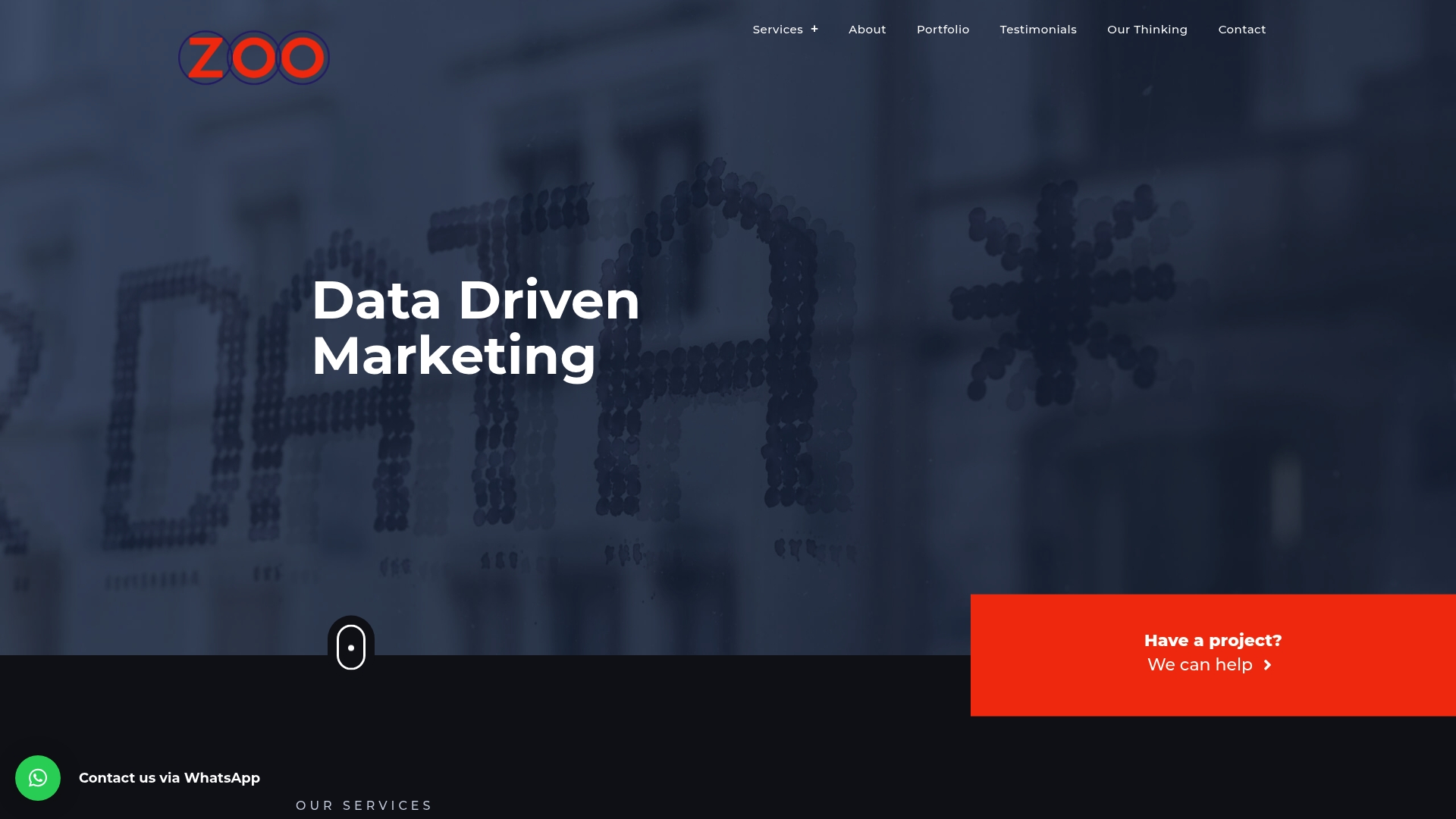Brands keep talking about making marketing personal, but only a handful really get it right. Only a few companies manage to turn generic ads into something that feels like it was made just for you. Most people do not realise that personalized marketing can actually deliver five to eight times higher returns on investment, according to recent research. The real surprise is personalization is not just about using your name in an email. It is about building messages and offers that read your mind without crossing the line. Want to know how this works?
Table of Contents
- What Is Personalization In Marketing?
- Why Personalization Matters For Businesses
- How Personalization In Marketing Works
- Key Concepts Of Personalization In Marketing
- Real-World Examples Of Successful Personalization
Quick Summary
| Takeaway | Explanation |
|---|---|
| Personalization enhances customer engagement. | Tailored marketing increases relevance and fosters meaningful customer interactions. |
| Data drives effective personalization strategies. | Collect and analyze customer data for better-targeted marketing messages and experiences. |
| Modern consumers expect personalized experiences. | Customers prefer brands that understand their unique preferences and needs, enhancing customer loyalty. |
| Personalization can significantly boost sales. | Companies practicing personalization can see a rise in sales by 10% or more, improving ROI. |
| Balance data use with privacy respect. | Successful personalization requires using data while maintaining transparency and valuing customer privacy. |
What is Personalization in Marketing?
Personalization in marketing represents a strategic approach where businesses tailor their marketing communications and experiences to individual customer preferences, behaviors, and needs. Unlike traditional mass marketing techniques, personalization transforms generic interactions into highly targeted, relevant engagements that resonate with specific audience segments.
Understanding the Core Concept
At its essence, personalization involves using customer data to create customized marketing messages, product recommendations, and experiences. Learn more about digital marketing strategies that can help businesses implement these sophisticated targeting techniques.
According to the Federal Trade Commission, personalization leverages multiple data points to craft marketing approaches, including:
- Demographic Information: Age, location, gender
- Behavioral Data: Website interactions, purchase history
- Engagement Patterns: Content preferences, interaction frequency
Why Personalization Matters
Customers increasingly expect marketing experiences that feel uniquely designed for them. Personalization transforms generic communication into meaningful dialogue, demonstrating that businesses understand and value individual customer needs. By creating more targeted and relevant interactions, companies can significantly improve customer engagement, loyalty, and conversion rates.
The key is collecting and intelligently using customer data while maintaining transparency and respecting privacy boundaries. Successful personalization strikes a delicate balance between providing tailored experiences and avoiding invasive marketing practices.
Why Personalization Matters for Businesses
Businesses today operate in an increasingly competitive digital marketplace where customer expectations have dramatically transformed. Personalization has emerged as a critical strategy for differentiating brands, driving customer engagement, and achieving substantial business growth.
Economic Impact of Personalization
According to McKinsey & Company, personalization can deliver remarkable economic benefits for businesses. Companies implementing sophisticated personalization strategies can potentially:

- Increase Marketing ROI: Five to eight times return on marketing investment
- Boost Sales: Potential sales lift of 10% or more
- Enhance Customer Retention: Improved customer loyalty and lifetime value
Learn more about digital marketing strategies for small businesses that can help leverage these personalization techniques effectively.
Shifting Customer Expectations
Modern consumers no longer tolerate generic, one-size-fits-all marketing approaches. They expect brands to understand their unique preferences, anticipate their needs, and deliver tailored experiences. By investing in personalization, businesses demonstrate they value individual customer relationships beyond transactional interactions.
The most successful personalization strategies combine data-driven insights with genuine customer empathy. This means moving beyond simple demographic segmentation to create meaningful, contextually relevant marketing experiences that truly resonate with each customer’s specific journey and preferences.
How Personalization in Marketing Works
Personalization in marketing operates through a sophisticated process of collecting, analyzing, and applying customer data to create targeted marketing experiences. This intricate mechanism transforms raw information into meaningful, individualized interactions that resonate with specific customer segments.
Data Collection and Analysis
The foundation of personalization lies in comprehensive data gathering. Businesses collect information through multiple touchpoints, including:
- Website Interactions: Browsing behavior, page views, time spent
- Purchase History: Previous transactions, product preferences
- Customer Profiles: Demographics, location, engagement patterns
Learn more about building effective marketing strategies to understand how data drives personalization.
According to Stanford Graduate School of Business, interactive media enables marketers to identify consumers, decide on real-time marketing messages, and capture immediate responses.
Implementing Personalized Experiences
Once data is collected and analyzed, businesses can create tailored marketing experiences. This might involve personalizing email subject lines, recommending products based on previous purchases, or creating dynamic website content that adapts to individual user preferences.
The key is transforming data into actionable insights that create meaningful connections. Successful personalization goes beyond simply inserting a customer’s name into a message—it requires understanding context, anticipating needs, and delivering value at precisely the right moment.
Key Concepts of Personalization in Marketing
Personalization in marketing represents a sophisticated approach that goes beyond traditional marketing strategies, integrating advanced data analysis, technological capabilities, and strategic customer engagement techniques. Understanding its fundamental concepts is crucial for businesses seeking to create meaningful customer connections.
Core Principles of Personalization
At its foundation, personalization relies on several critical principles that transform generic marketing into targeted, relevant experiences. These principles include:
- Individual Relevance: Creating communications specifically tailored to individual customer characteristics
- Data-Driven Insights: Utilizing comprehensive customer data to inform marketing strategies
- Dynamic Adaptability: Continuously adjusting marketing approaches based on evolving customer behaviors
Learn more about using marketing analytics effectively to support personalization strategies.
According to West Virginia University, personalized marketing fundamentally aims to collect and leverage data on consumer preferences and behaviors.
Technological Foundations
Modern personalization depends on sophisticated technological infrastructure that enables real-time data processing, predictive analysis, and seamless customer experience customization. This involves integrating advanced technologies like artificial intelligence, machine learning algorithms, and robust customer relationship management systems to transform raw data into actionable marketing insights.
Successful personalization requires a delicate balance between technological capability and human understanding, ensuring that data-driven strategies maintain genuine customer empathy and respect for individual privacy.
Below is a table summarising the main principles and technological foundations that underpin effective personalisation in marketing, allowing readers to easily distinguish their characteristics and roles.
| Aspect | Description |
|---|---|
| Individual Relevance | Crafting communications tailored specifically to each customer |
| Data-Driven Insights | Using comprehensive data to shape and inform marketing strategies |
| Dynamic Adaptability | Continuously adjusting marketing efforts based on evolving customer behaviour |
| Real-Time Data Processing | Technology enabling instant analysis and use of customer interactions for timely personalisation |
| Predictive Analysis | Leveraging AI and machine learning to forecast preferences and needs |
| Seamless Experience Customization | Employing CRM systems and automation to deliver consistent, personalised experiences |
Real-World Examples of Successful Personalization
Personalization strategies have transformed marketing approaches across various industries, demonstrating the powerful impact of tailored customer experiences. By examining successful implementations, businesses can gain insights into effective personalization techniques that drive engagement and revenue.
Retail and Consumer Brands
Some of the most compelling personalization examples emerge from innovative retail strategies. Discover more about data-driven marketing approaches that can inspire your personalization efforts.
According to Stanford University, targeted email personalization can significantly improve marketing outcomes. Specific examples include:
- Coca-Cola’s ‘Share a Coke’ Campaign: Personalized bottles with individual names, generating 12 million media impressions
- Amazon’s Recommendation Engine: Providing personalized product suggestions based on browsing and purchase history
- Netflix Personalized Viewing: Custom movie and series recommendations tailored to individual viewing patterns
Digital Experience Personalization
Digital platforms have become sophisticated in creating individualized user experiences. Streaming services, e-commerce platforms, and digital marketing channels now leverage advanced algorithms to deliver content, products, and recommendations that feel uniquely crafted for each user.
Successful personalization goes beyond simple name insertion—it requires deep understanding of customer preferences, anticipating needs, and creating seamless, relevant interactions that make customers feel truly understood and valued.
The following table highlights real-world examples of successful personalisation campaigns and platforms from the retail and digital industries, showcasing their unique strategies and outcomes.
| Brand/Campaign | Personalisation Approach | Outcome/Impact |
|---|---|---|
| Coca-Cola’s ‘Share a Coke’ | Bottles personalised with individual names | Generated 12 million media impressions |
| Amazon Recommendation Engine | Product suggestions based on browsing and purchase history | Boosted customer engagement and sales conversions |
| Netflix Viewing Recommendations | Customised listings based on individual viewing preferences | Enhanced user satisfaction and retention |
| Target Personalised Promotions | Tailored offers sent according to shopper’s purchase behaviour | Increased customer loyalty and return visits |

Ready to Transform Your Marketing with Real Personalisation?
Are you frustrated by generic marketing that fails to connect with your customers? Many businesses struggle to turn data into truly personal experiences, as outlined in our article on understanding personalisation in marketing. If you want tailored communication that boosts engagement and loyalty, you need solutions that put smart data to work for you.

Let Zoo Digital help you bridge the gap between raw data and meaningful customer connections. Harness the power of data-driven decision making and targeted automation with our digital marketing expertise. Explore how we can support your growth with services such as tracking setup, CRM management and advanced ad campaigns. Visit Zoo Digital and see how our strategies drive real results. Reach out now to unlock highly effective marketing personalised for your business needs.
Frequently Asked Questions
What is personalization in marketing?
Personalization in marketing is a strategic approach where businesses tailor their marketing messages and experiences according to individual customer preferences and behaviors, making interactions more relevant and targeted.
Why is personalization important for businesses?
Personalization is crucial for businesses as it helps differentiate brands in a competitive market, drives customer engagement, and can lead to significant improvements in marketing ROI and customer loyalty.
How does personalization in marketing work?
Personalization works by collecting and analyzing customer data—such as website interactions, purchase history, and demographic information—to create customized marketing experiences that resonate with particular segments of the audience.
What are some effective examples of personalization in marketing?
Effective examples include Amazon’s recommendation engine, Coca-Cola’s ‘Share a Coke’ campaign with personalized bottles, and Netflix’s tailored viewing recommendations, which enhance customer engagement and satisfaction.

